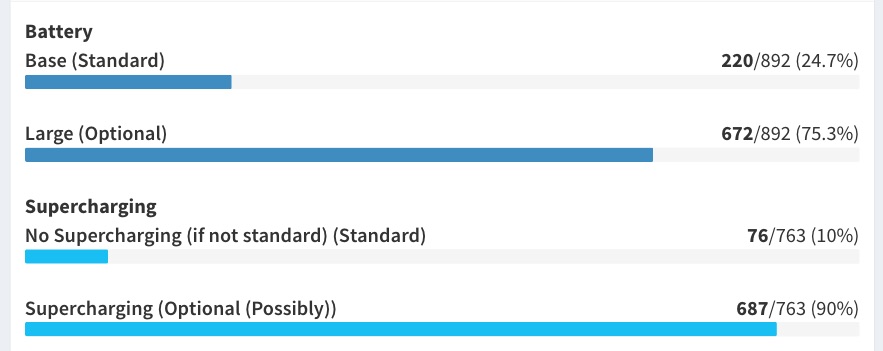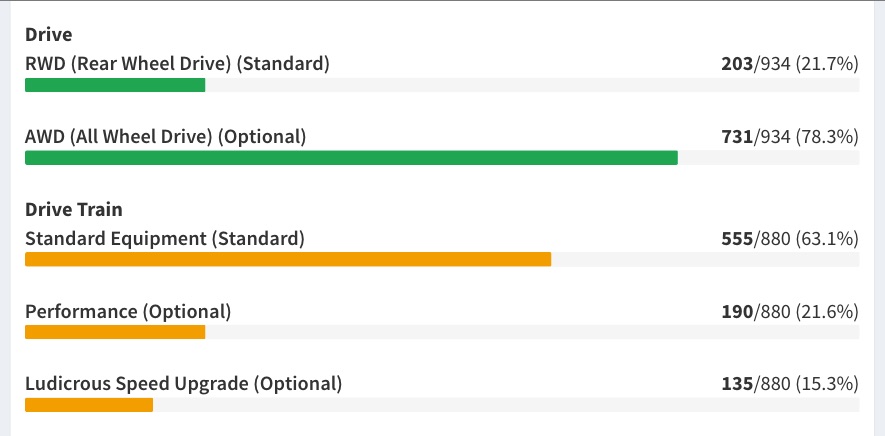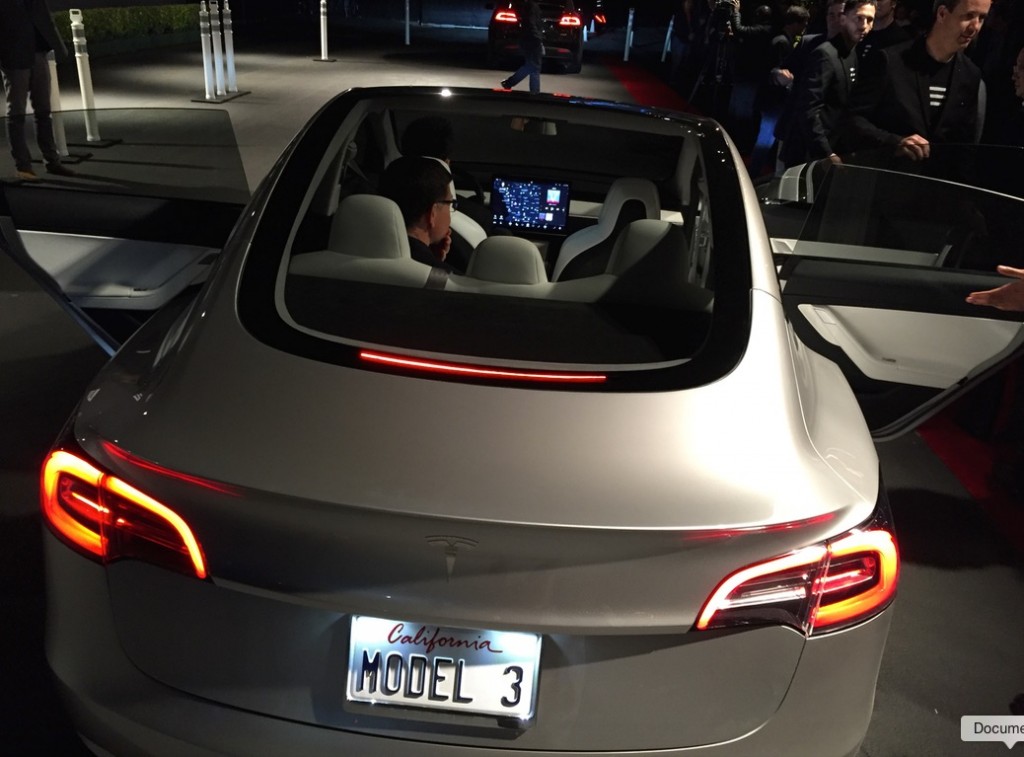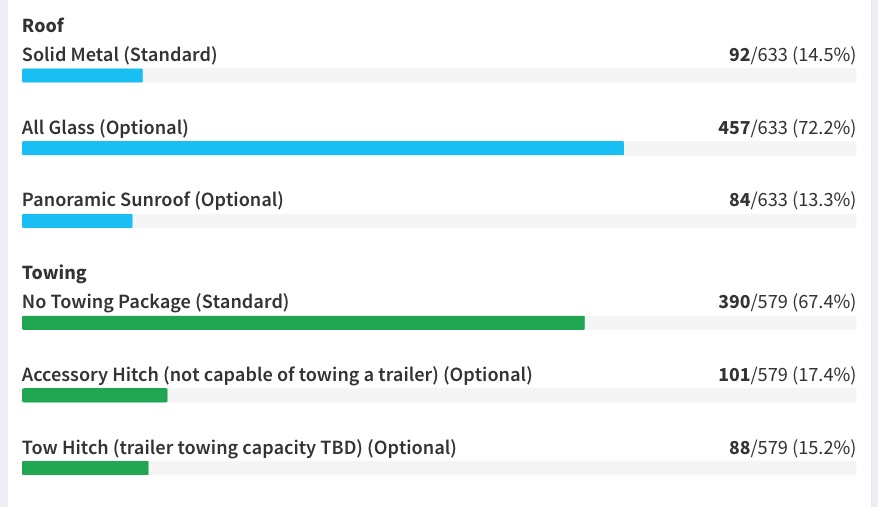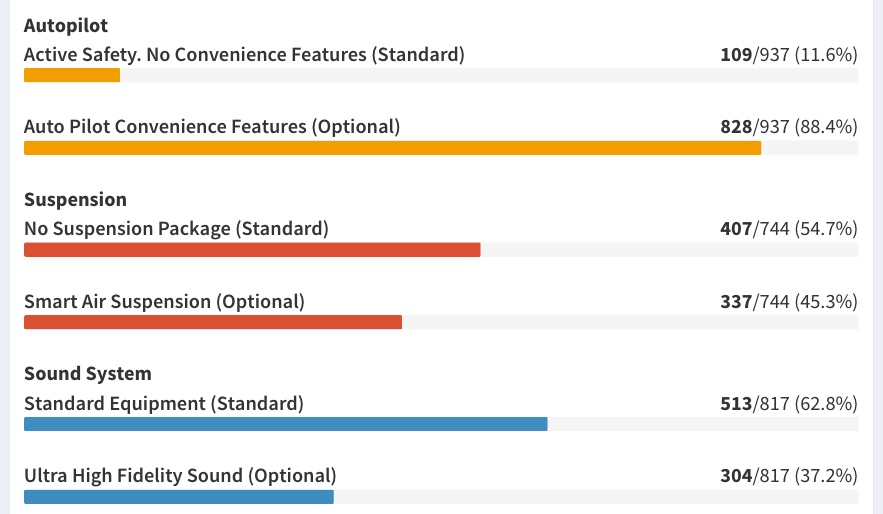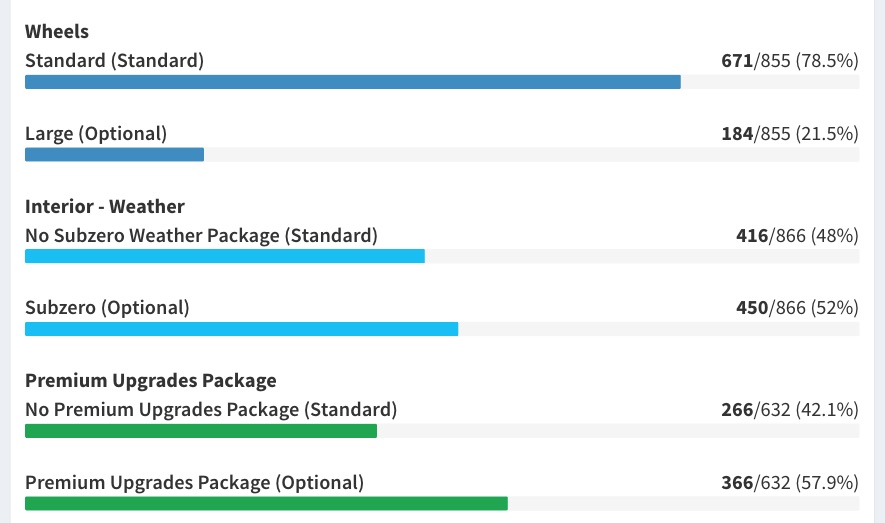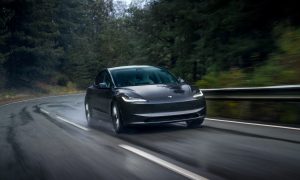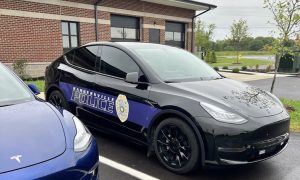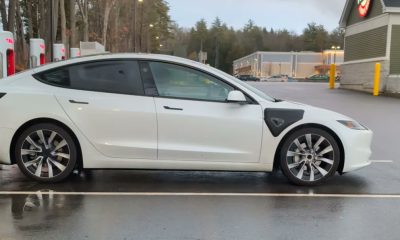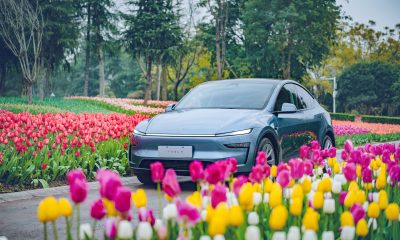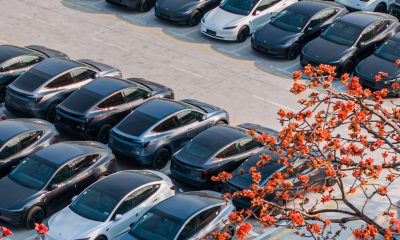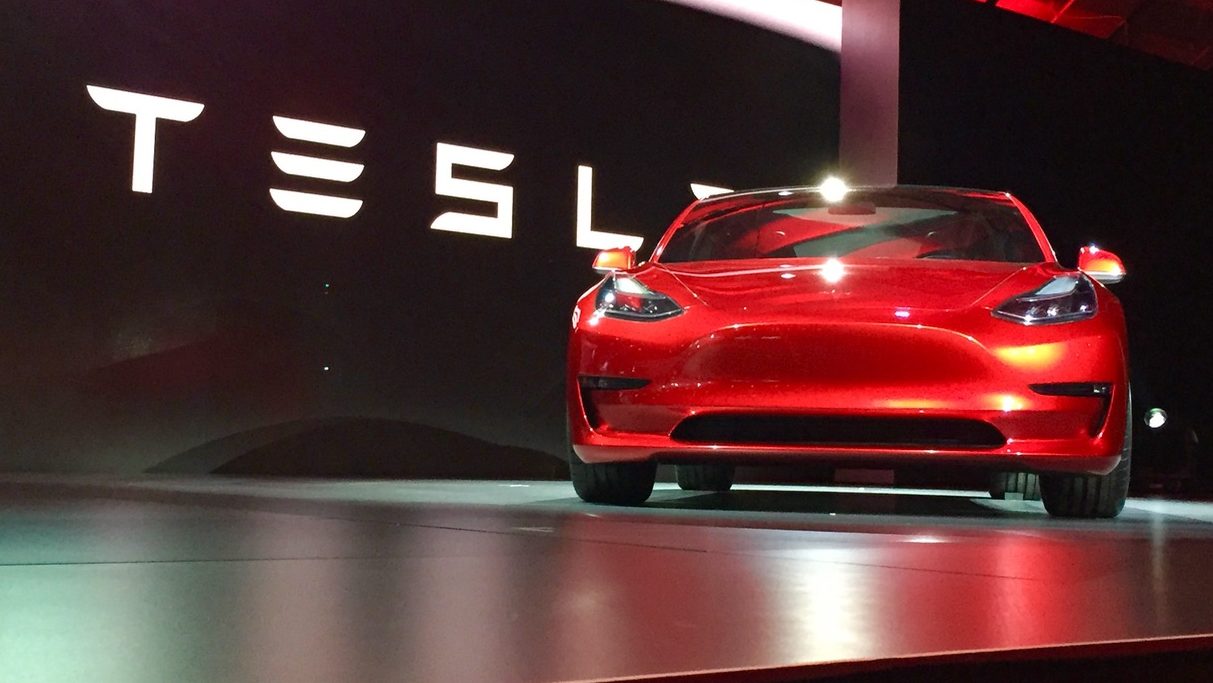

News
Early Insight into Tesla Model 3 Most Popular Configurations
Let’s cut to the chase. 90% of Tesla Model 3 reservations holders are willing to pay extra for Supercharger access. 22% want the standard rear wheel drive configuration and 88% want Autopilot even if it’s an optional upgrade. That is according to early stats compiled by crowd sourced database Model3Tracker.info.
Based on a sample of 1637 entries from Model 3 reservation holders, we’re able to obtain early insight on how Tesla might prioritize production of its mass-market electric vehicle come next year.
Let’s take a deeper look at what Model 3 owners want.
Tesla Model 3 Battery Size
There’s no hiding the fact that most Model 3 owners will want a larger battery. Despite the announcement that the base Model 3 will have a minimum of 215 miles of range per single charge, 75% are willing to upgrade to a larger-sized battery pack. Many will be first-time electric vehicle owners, and presumably willing to pay a little extra for peace of mind in the form of extended driving range.
Drivetrain and Performance
Tesla has confirmed that the Model 3 will have a standard rear wheel drive configuration, but it appears that most reservation holders will opt for the D: dual motors and all wheel drive. 78% want a Model 3 <insert battery size>D.
A little over a third of the entrants will want the option to do more spirited driving with a performance version of the Model 3, while 15% of that will want some form of Ludicrous.
Model 3 Roof Option
Apparently everyone is in love with the Model 3 all glass roof and rightfully so. 72% of reservation holders polled would pay extra to have an all glass panoramic roof seen on the Model 3 prototypes at the reveal event.
Though Tesla CEO Elon Musk indicated that the Model 3 would have the ability to tow, only 15% would be interested in upgrading the vehicle with a tow-capable hitch.
To Autopilot or Not to Autopilot?
An overwhelming number of Model 3 reservation holders want Autopilot capabilities and willing to hand over the extra money to do so. 88% of those polled via Model3Tracker.info indicated that they want the convenience of having Tesla’s self-driving and self-parking capabilities.
With the ability to improve itself through fleet learning, Tesla’s Autopilot continues to get better and will likely become fully autonomous by the time first Model 3 vehicles roll off the assembly line in late 2017.
Wheels, Interior, and Sound
The remaining options are, for the most part, equally split with the exception of wheels. 78.5% of Model 3 reservation holders polled will want to keep the standard wheel offering.
If you’re a Model 3 reservation holder, please help Model3Tracker.info increase its sample size by contributing your own preferences through their platform.
We’ll provide a closer look at each of the available options, and the choices people made, once additional data has been collected.
News
Trump’s auto tariffs spark concerns in Japan

Japan expressed concern over President Trump’s auto tariffs, citing inconsistencies with a 2019 bilateral trade deal signed with the U.S.
Prime Minister Shigeru Ishiba said Japan is committed to the 2019 agreement despite current concerns over President Trump’s new tariffs.
Trump’s tariffs impose a 25% duty on imported vehicles, effective April 3, 2025, and auto parts duties will be imposed in May. The 2019 U.S.-Japan trade deal, signed during Trump’s first term, reduced tariffs on U.S. farm goods and Japanese machine tools.
Then-Prime Minister Shinzo Abe secured assurances from Trump, stating, “Between President Trump and I, this has been firmly confirmed that no further, additional tariffs will imposed.”
The 2019 bilateral trade deal did not cover auto trade between the United States and Japan. However, at the time, Prime Minister Abe had received assurances from President Trump that the U.S. would not impose national security tariffs on Japanese car imports. As such, the deal avoided higher U.S. car duties.
According to Reuters, Japan faces Trump’s 24% tariff on its exports to the United States, which were paused until July. Trump’s 25% auto tariff and a 10% universal rate remain intact, impacting Japan’s car-heavy economy.
Ishiba addressed the issue in parliament, noting, “Japan has grave concern over the consistency” between the tariffs and the 2019 bilateral deal. “We will continue to convey our stance (to the U.S.) from this standpoint,” he added, clarifying that Japan has no plans to terminate the agreement. The deal excluded automobile trade and remains a cornerstone of bilateral relations.
Japan’s trade negotiator, Ryosei Akazawa, visited Washington last week to discuss trade issues, including non-tariff barriers and exchange rates. Finance Minister Katsunobu Kato is set to meet U.S. Treasury Secretary Scott Bessent this week to address currency concerns, signaling Japan’s proactive diplomacy.
Japan’s firm stance reflects its intent to protect its auto sector while navigating U.S. trade policies. As talks continue, the outcome could shape bilateral trade dynamics and influence Japan’s export strategy amid ongoing tariff uncertainties.
News
Elon Musk dubs lawsuit alleging false Tesla odometer readings “idiotic”
The lawsuit alleged that Tesla’s odometer readings use “predictive algorithms” instead of actual mileage driven.

Elon Musk has responded sharply to a lawsuit alleging that Tesla speeds up its vehicles’ odometers to avoid paying for warranty-covered repairs.
Musk’s comment about the lawsuit’s allegations were posted on social media platform X.
The Lawsuit’s Allegations
The proposed class-action lawsuit claimed that Tesla is speeding up its vehicles’ odometers so that they can fall out of warranty quicker. This system, the lawsuit alleged, allows Tesla to save a significant amount of money in repairs.
The lawsuit’s plaintiff is Los Angeles resident Nyree Hinton, who alleged that his 2020 Tesla Model Y’s odometer readings reflect energy consumption, driver behavior and “predictive algorithms” instead of actual mileage driven, as noted in a Reuters report.
Hinton claimed that based on other vehicles and driving history, his car was stating that he was driving 72 miles a day when he usually drove just 20 miles at most. Because of this, Hinton alleged that his basic warranty expired well ahead of schedule, resulting in him paying $10,000 for a suspension repair that he believes should have been covered by warranty.
“By tying warranty limits and lease mileage caps to inflated ‘odometer’ readings, Tesla increases repair revenue, reduces warranty obligations, and compels consumers to purchase extended warranties prematurely,” the lawsuit noted.
Elon Musk’s Response
Tesla and its legal team have fully denied all material allegations that were outlined in the proposed class-action lawsuit. In a comment to longtime FSD user @WholeMarsBlog on X, Tesla CEO Elon Musk also criticized the proposed class-action lawsuit. “This is idiotic,” the CEO wrote in a post on X.
Veteran EV owners have also stated on social media that the lawsuit’s claims were inaccurate since Tesla’s odometers do not, in any way, use predictive algorithms. Others also pointed out that repairs are not a major source of profit for Teslas because the company’s vehicles tend to last long without requiring maintenance or spare parts.
News
Bizarre Tesla Cybertruck attacker in South Korea arrested and detained
The man is also accused of assaulting several people and damaging other vehicles during the incident.
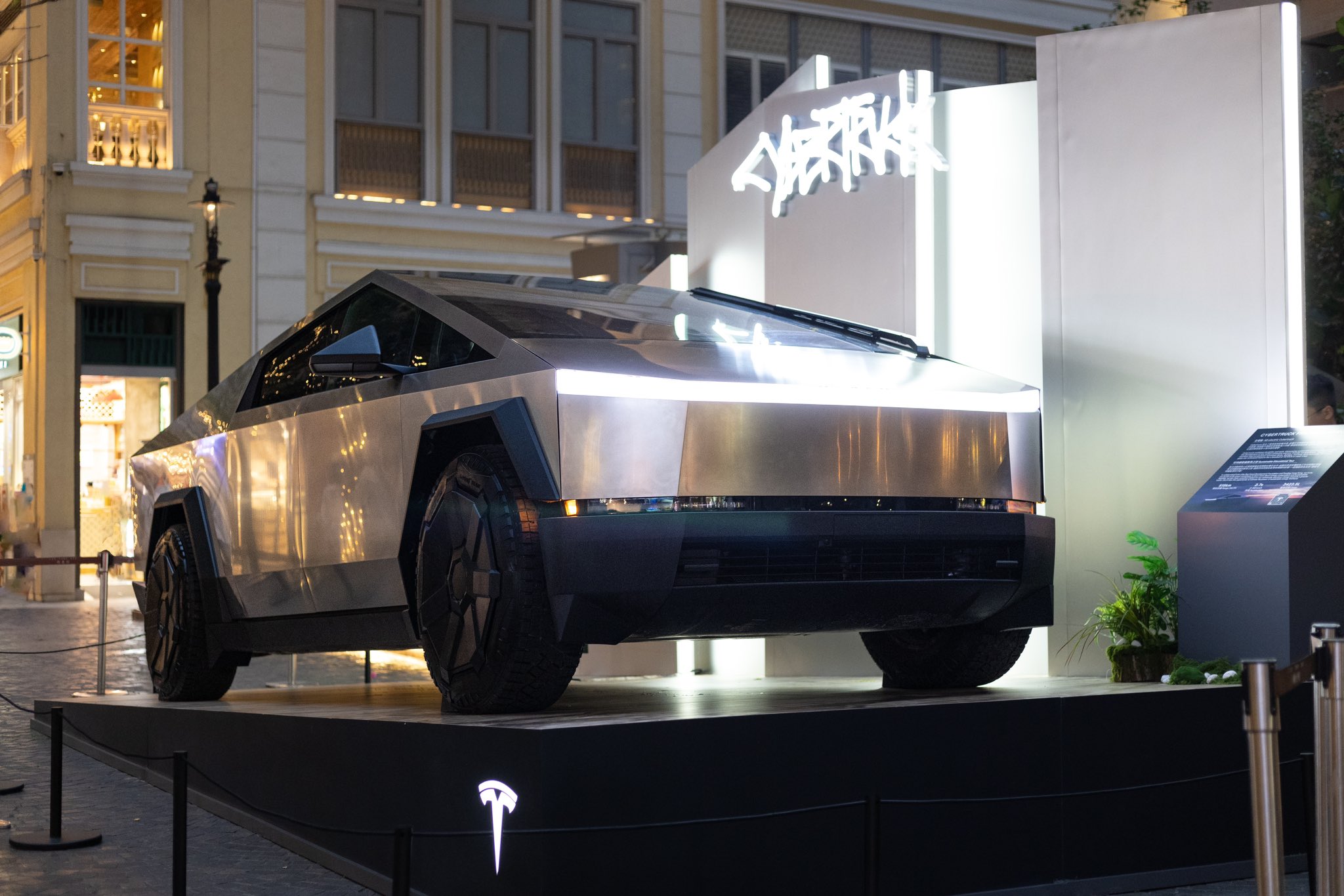
A man who attacked a Tesla Cybertruck in South Korea’s Gangnam district has been arrested and detained.
As per reports, the man is also accused of assaulting a person and damaging several other vehicles during the incident.
The Incident
As per authorities, the suspect, who is in his 30s and is dubbed “Mr. A” (suspect names are typically not disclosed in South Korea to protect privacy and prevent possible prejudice), allegedly assaulted a hotel employee on the morning of April 15.
Following the assault on the hotel employee, the suspect reportedly knocked over a delivery motorcycle. He then went over and kicked a Tesla Cybertruck that was owned by a nearby medical facility. One of the all-electric truck’s side mirrors was damaged due to the attack.
As per a News 1 Korea report, Mr. A has also been accused of kicking four BMW vehicles at a nearby auto shop. The BMWs’ passenger side doors were damaged by the suspect.
Charges and Arrest
As per the Seoul Gangnam Police Station in an announcement, an investigation into the incident is underway. The suspect was arrested on charges of special assault, property damage, and obstruction of business.
Authorities apprehended Mr. A in Seongnam, Gyeonggi Province, on April 18. An arrest warrant from the court was released the day after.
Cybertruck Attacks
The Tesla Cybertruck attack in South Korea is quite bizarre as the suspect assaulted both people and vehicles. The incident, if any, seems to be quite different from the attacks on Teslas that have been reported in the United States and Europe, which seemed to be political in nature and a response to CEO Elon Musk’s close relationship with President Donald Trump.
-
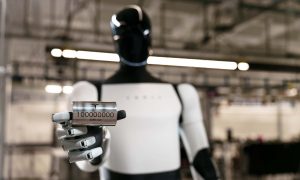
 News2 weeks ago
News2 weeks agoTesla celebrates key milestone for 4680 battery cell production cost
-
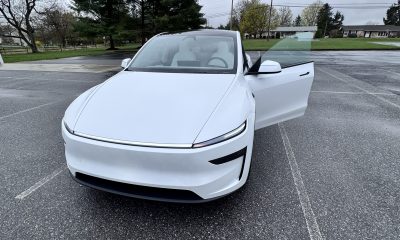
 News2 weeks ago
News2 weeks agoI took a Tesla new Model Y Demo Drive – Here’s what I learned
-
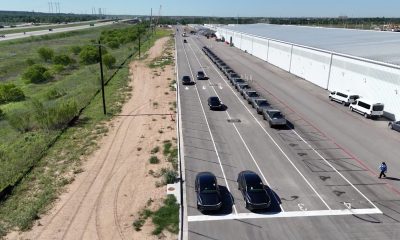
 News2 weeks ago
News2 weeks agoTesla’s Giga Texas vehicles now drive themselves to outbound lot
-
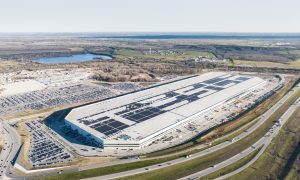
 News2 weeks ago
News2 weeks agoTesla’s ecological paradise near Giga Texas takes shape
-
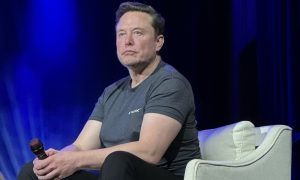
 News2 weeks ago
News2 weeks agoElon Musk and top Trump trade advisor Peter Navarro lock horns over tariffs
-

 News2 weeks ago
News2 weeks agoTesla bull lowers price target citing ‘brand crisis’
-
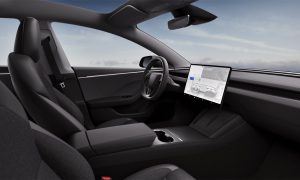
 News2 weeks ago
News2 weeks agoTesla adding new safety features for improved emergency detection
-
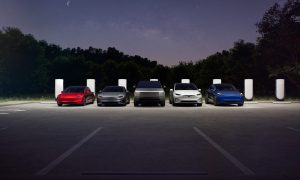
 News2 weeks ago
News2 weeks agoTesla rolls out latest Safety Score update—Here’s what’s new

